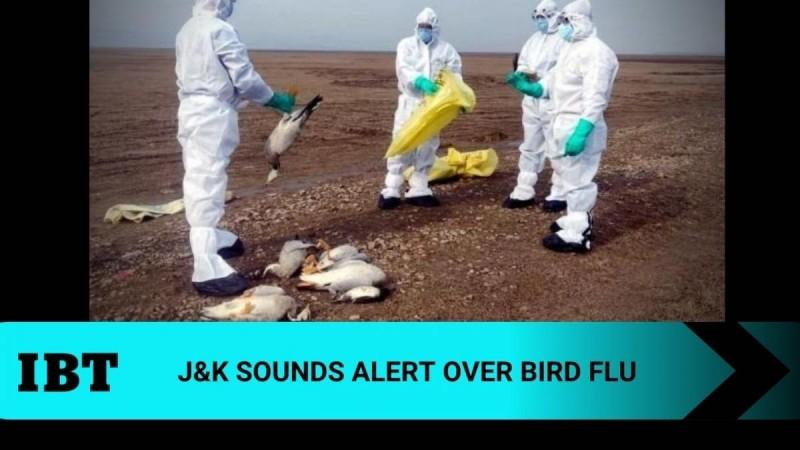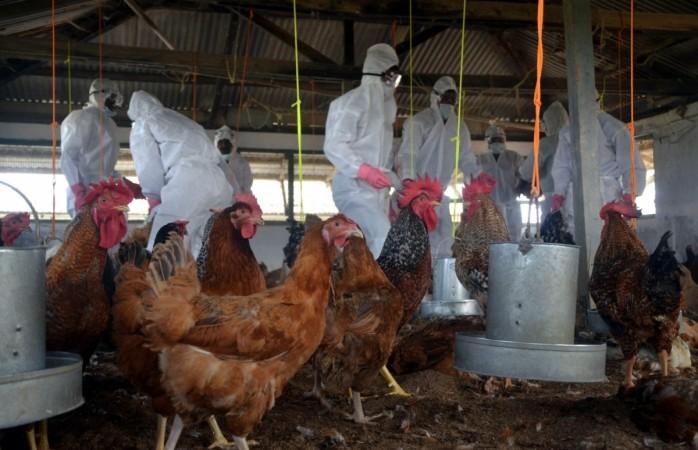After Himachal Pradesh, Kerala, Chandigarh and Punjab, bird flu fears have reached the union territory of Jammu and Kashmir. The joint teams of Animal Husbandry and Wildlife departments collected bird droppings from Gharana wetlands in the outskirts of Jammu. The officials collected 25 bird droppings to test them for avian influenza (H5N8) infection in migratory birds.
J&K government has sounded an alert after reports of bird flu cases were found in neighboring Himachal Pradesh. The Wildlife Conservation Fund (WFC) issued guidelines in view of the bird flu as a precautionary measure.

Advisory to poultry sector
In the wake of the spread of bird flu in neighbouring states of UT of J&K, following advisory is issued for all stakeholders related to poultry sector in J&K including poultry owners, dealers, retailers and consumers by the Animal/Sheep Husbandry & Fisheries Department of Govt of J&K.
- Poultry farmers are advised to improve biosecurity measures in the farms.
- Do not allow any artificial ponds, small water bodies inside and around farm premises which may attract wild birds and is risk to the poultry.
- Keep the farm premises and shed surroundings vegetation-free. Regularly clean the areas.
- Keep feed supplies and water for poultry protected as they attract wild birds and rodents.
- Always use foot dips at the entry into the sheds and feed godowns.
- Keep the poultry litter dry and fly maggot free, wet litter and fly maggot larvae attract wild birds vii) Restrict entry of visitors into the farm
- Discourage outdoor rearing of poultry as the open type rearing of poultry will enhance the risk for introduction of avian influenza into the farming systems.
- Discourage multiple species of birds rearing in the farms Keep chicken separated from domestic ducks, geese and wild birds. Immediately report any type of sickness in birds to nearest veterinary centre especially edema in the comb and wattles, Purple discolouration/ cyanosis of the wattles, combs, and legs, diarrhoea, Nasal discharge, soft-shelled or misshapen eggs, decreased egg production, coughing and sneezing, Lack of coordination.
- Feed better nutrition to the birds and include antioxidants, vitamin C, E and selenium in the feed.
- All poultry dealers and retailers shall cooperate with Veterinary and Para Vet staff for sampling.
- Poultry dealers and retailers shall use masks and other protective gear and should take proper sanitation measures while dealing with poultry birds.
- It is mandatory for all poultry dealers to keep proper record of the source of poultry birds and track of supplies to retailers to ensure traceability.
- Dead birds should not be thrown in open and shall be burnt or buried deep in ground. Xvi) Poultry retailers are advised to dispose of poultry offals carefully and at designated places and shall not through them in open.
- There is no need to panic and stop eating poultry products as there is no report of bird flu in J&K.
- There is no report that bird flu can spread through properly prepared and cooked poultry food and the virus is sensitive to heat and dies in cooking temperatures. Instructions for Animal Husbandry Department Jammu & Kashmir:
- Action plan of Animal Husbandry for preparedness, control and containment of Avian Influenza issued by Gol shall be strictly adhered to.
- The provisions of the Prevention and Control of Infectious and Contagious Diseases in Animals Act 2009 shall be strictly adhered to. Animal Husbandry Department Jammu/Kashmir shall conduct rigorous inspection of all poultry imports at Lakhanpur.
- District Surveillance committees shall be constituted immediately to ensure checking of all poultry units and sale points.
Bird flu in India

The Ministry of Fisheries, Animal Husbandry and Dairy has confirmed the presence of bird flu virus in four Indian states – Himachal Pradesh, where around 1,800 migratory birds were found dead in the Pong Dam Lake sanctuary, while others include Rajasthan, Madhya Pradesh and Kerala.
Other states sharing borders with the affected states have also been warned, especially after Haryana's Panchkula reported deaths of over four lakh poultry birds in the past few days.
"In India, the disease spreads mainly by migratory birds coming into India during winter months i.e. from September-October to February-March. The secondary spread by human handling (through fomites) cannot be ruled out," the ministry said in a statement.
In addition to the general precautionary measures, a control room has also been set up in New Delhi to keep a continuous watch on the situation and take stock on a daily basis.









